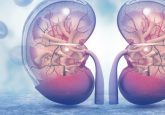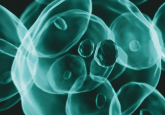Novel gene could predict metastatic potential of breast tumors
A novel gene termed DP103 has recently been identified as a potential marker of both treatment response and disease relapse in breast cancer. The discovery, which appeared recently in the Journal of Clinical Investigation, may aid in the personalization of breast cancer therapy, potentially improving effectiveness of such treatments.
The study was a collaboration between A*STAR’s Institute of Molecular and Cell Biology (IMCB) and the Cancer Science Institute of Singapore at the National University of Singapore. The team determined that DP103 is activated in metastatic breast cancer and went on to define DP103 as a master regulator of metastasis. DP103 appears to regulate the expression of two sets of proteins: one set that promotes breast cancer metastases and another that renders patients unresponsive to chemotherapy.
The authors suggest that by examining DP103 in breast cancer patients, clinicians may be able to predict the probability of the disease becoming metastatic and to predict whether a patient would respond to chemotherapy.
“Doctors are unable to tell if a breast cancer patient will respond to chemotherapy until six months after the treatment has been prescribed. It is very worrisome as the ones who are not responsive to chemotherapy usually also suffer relapses due to metastasis. This DP103 gene that we found explains the link and will facilitate doctors in selecting suitable treatments for different cases of breast cancer,” explained Vinay Tergaonkar of IMCB, co-lead author of the study.
Additionally, the research demonstrated that reduction of DP103 expression in animal models resulted in tumor shrinkage and resensitization of tumors to chemotherapy, suggesting that the gene may also be a therapeutic target.
“DP103 is a novel biomarker that could help doctors select appropriate treatments for breast cancer patients at an early stage. It is also a therapeutic target which could be explored further to develop drugs that suppress breast cancer growth, as well as metastasis,” commented co-lead author Alan Prem Kumar of National University of Singapore, who first discovered DP103‘s oncogene potential to drive breast cancer metastasis.
Source: Agency for Science, Technology and Research press release




